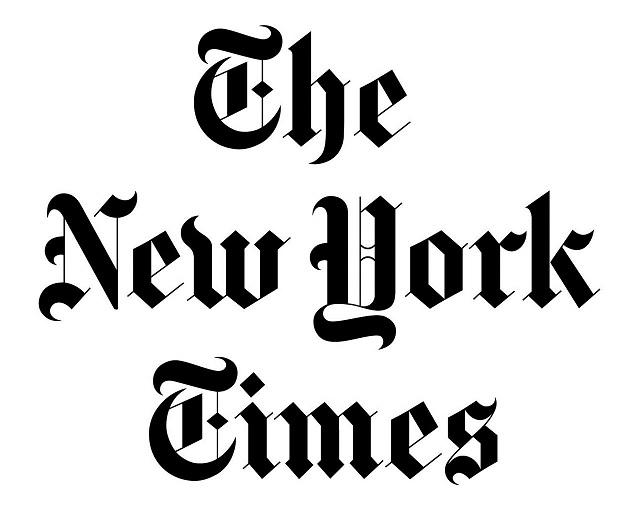Overturning New York Times v. Sullivan
In 2018, the Washington Post and New York Times were awarded a Pulitzer Prize for reporting on alleged connections between Trump and Russia influencing the 2016 election. This was an attack on the truth, but not the worst in history. In 1964, the NYT was involved in an even greater assault on the truth in the case New York Times Co. v. Sullivan. In this case, the United States Supreme Court, the most powerful judicial body in history, ruled that lies about public figures are protected unless the plaintiff can prove the publisher knew the information was false before publishing.
As the country approaches the final stretch of the 2024 election, vile rhetoric and lies will increase. The SCOTUS decision in NYT v. Sullivan has substantially contributed to this situation because, on that fateful day of March 9, 1964, the Court unanimously undermined the truth and made lies profitable. Yet this decision is celebrated as a great victory for the First Amendment and free speech. That’s nonsense. After Sullivan, media corporations filled with professional writers, supposedly dedicated to reporting the truth, were granted government protection to bear false witness against public figures.
This is especially damaging for political figures. As media-propagated lies spread, for example, from the NYT to other established news outlets, our political candidates and leaders are powerless to stop the spread or punish those who broadcast damaging false information. This poisonous discourse opens the floodgates to lies and, dare I say, disinformation, to the point where the Pulitzer Prize Board can confidently award a major news organization for publishing lies.
At this point, the best solution is to completely overturn Sullivan to reestablish respect for individual reputations and the truth as fundamental values. The concerns expressed by the SCOTUS in the Sullivan ruling, such as the need for public debate and protecting free expression, do not outweigh the importance of the truth. People and news organizations still have the freedom to express, debate, and speak their minds. They can still claim candidates are stupid, cruel, evil, corrupt, racist, sexist, or anything else derogatory. They just might be sued if they make specific false statements about public figures.
However, if Sullivan is not completely overturned, there is a compromise that offers some protection, fairness, and justice to public figures. The Sullivan ruling primarily weakened the victim's rights, placing the burden on public figures to prove malicious intent in order to sue. Meanwhile, the offending side may profit from lies. Shouldn’t that revenue belong to the person defamed? In the current system, the media and others can earn revenue off the image and likeness of a public figure with lies and keep all the revenue for themselves.
A simple legal fix to NYT v. Sullivan would be to allow public figures an option to sue those that defame them not for reputational damages, but for the revenue made at their expense. In choosing this path, the public-figure plaintiff would only need to prove the statements were false and damaging to their reputation. If successful, the award would be based only on revenue earned from the false statements, along with reasonable attorney’s fees, both of which are likely easier to calculate than reputational damage. For example, on many social media sites the details on revenue earned for specific content is already accurately tracked.
Therefore, if someone posts lies about a public figure on YouTube and earns revenue from this, the revenue earned would be available to the public figure as part of this type of defamation lawsuit. The same would apply to any organization or individual, whether in print, on television, on social media, on podcasts, or any other medium, making defamatory statements about public figures for clicks leading to subscriptions and/or advertising revenue.
Not only would this show respect for the truth and provide relief to defamed public figures, but it would also improve media discourse. Imagine how the media landscape would change if the NYT risked forfeiting all the revenue from their popular Russia hoax coverage to the Trump campaign. Additionally, the revenue generated from lies by supposed purveyors of truth would offer far more valuable data for the public to make informed decisions on the credibility of information and news sources than anything a fact-checking site, disinformation board, or censorship board could ever produce.
Charlie Rose recently retired after working over 30 years for the United States Army.

Image: New York Times
FOLLOW US ON
Recent Articles
- Jay Leno, Dementia, and the Impermanence of Life
- We Must Teach Children to Love Freedom More Than Government
- Judge Not
- A Good Day For The Navy
- Woke Ideology Requires Antisemitism
- Trump and the Public Trust
- Trump’s First 100 Days: A Scorecard of Wins, Waits, and Wobbles
- Larry David: No Longer the Master of his Comedic Domain
- Mass deportations without ICE enforcement
- Harvard’s Tax-Exempt Status and Religion-Based Bequests
Blog Posts
- The illegal alien raid in Colorado reveals a cancer in our military
- Forget Trump’s blue suit. What about those so-called ‘transgender’ mourners at the Pope’s funeral?
- About those port explosions in Iran *UPDATED*
- Shedeur Sander’s fall from grace
- There goes the sun?
- Trump’s 'come to Jesus’ moment on Ukraine, at Pope Francis’s funeral
- Reflections on a papal visit
- When the center-fielder saved the flag
- What vote by mail gets you
- A real deterrent for violent criminals
- Recruiting mysteriously, dramatically, increases
- Climate scientists want to shut off the sun
- Drone footage shows Pacific Palisades reservoir still empty
- Biden pops up at the pope's funeral, looking lost
- The mind-numbing, innovation-destroying DEI permeating Washington State government *UPDATED*






